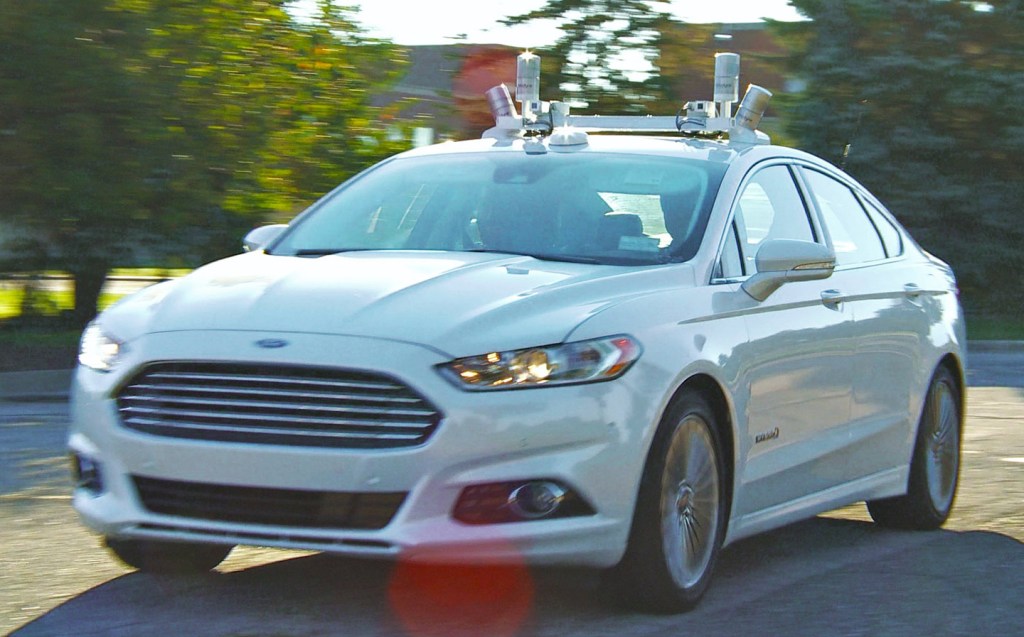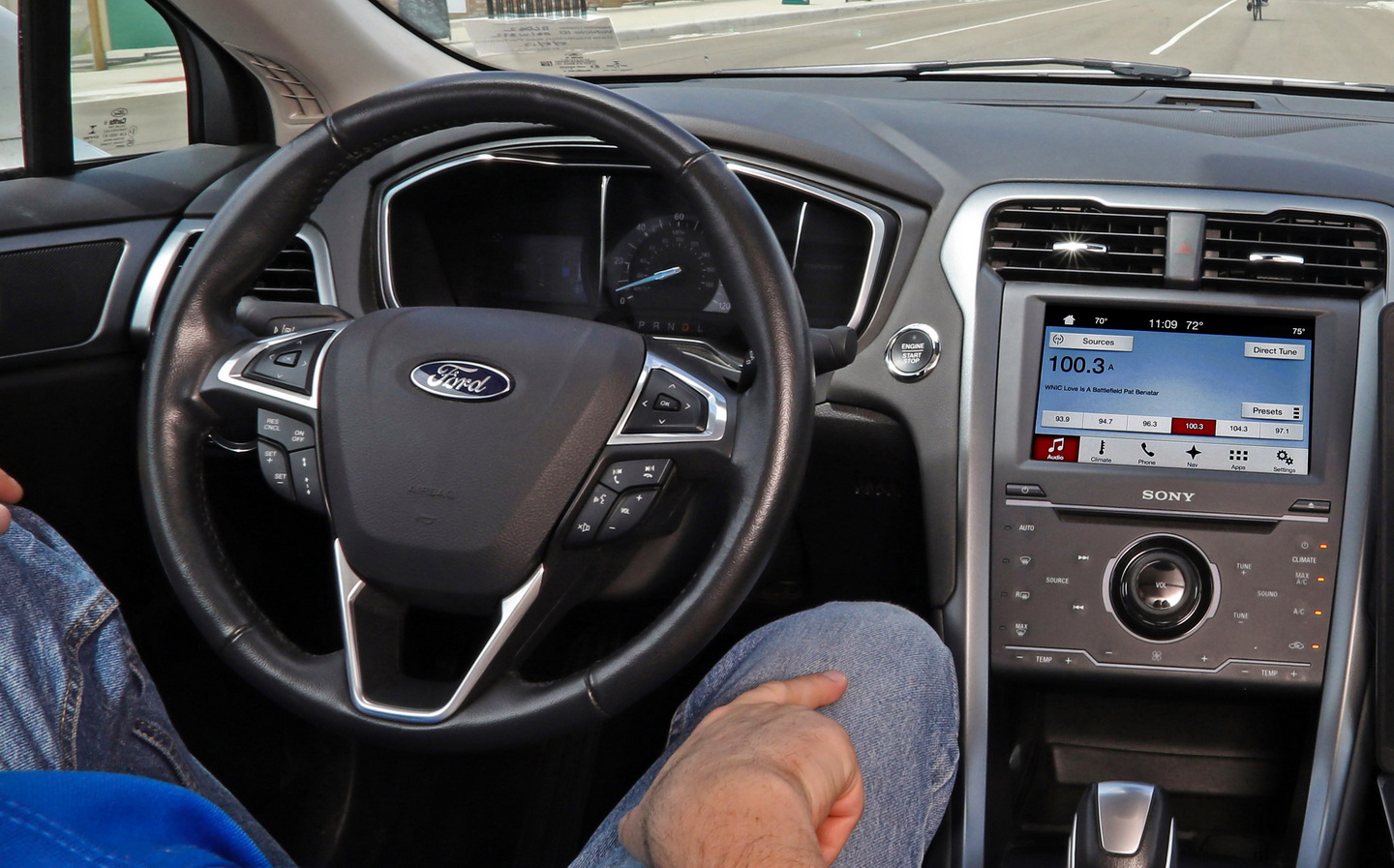Ford patents self-driving car that will take itself back to showroom if finance payments are missed
Possessed or repossessed?
Ford has submitted a patent that see self-driving cars driving themselves back to the showroom if finance payments are missed.
The patent application, titled “Systems and Methods to Repossess a Vehicle”, was filed back in 2021 but only recently published by the United States Patent and Trademark Office (USPTO).
The car taking itself off your driveway using self-driving technology would be a last port of call along what Ford describes as a ‘multi-step repossession procedure’ designed to deal with uncooperative owners and avoid confrontation.
The owner would first receive messages through the car’s infotainment system warning them of their failure to honour car loan or lease repayments.
Life with the car could then become increasingly frustrating with features such as the navigation system, speakers and air conditioning disabled remotely to encourage owners to comply with their lease payments. The patent stated that Ford may also activate an audio component remotely in the car to emit a continuous unpleasant sound every time the owner is in the car.
Other features to pile pressure on offenders include stopping the car from being driven to some locations and locking the owner out of the car at certain times.
This latter penalty could be lifted in case of an emergency to allow the vehicle to be used to drive to a hospital, and access would also still likely be granted for essential travel, such as going to and from work so as not to remove the ability of the owner to earn money that could facilitate repayments.
If the owner still failed to make repayments, as a last resort the car could be instructed remotely by Ford to drive itself back to the showroom.
Cars in poor condition or older vehicles reaching their end of life could also be taken off the road by being instructed to drive themselves to a scrapyard or recycling facility.

The patent application implies that Ford is looking into autonomous technology as a way to repossess cars but doesn’t necessarily indicate that it will be rolled out in Ford’s future product plans. Global car companies such as Ford submit patents routinely in order to protect new technologies, brand names and the company’s commercial advantage, though most patents aren’t brought to production.
Currently, many cars on sale have the ability to be controlled remotely but this is a privilege granted to owners through the use of an app developed by the car-maker. Many of the world’s biggest car-makers such as Ford, Volkswagen and Toyota use apps and connected car technology to help owners locate their car when parked, unlock the car doors or sound the horn remotely.

Ford’s own app gives owners of their cars the ability to even remote start their car to warm it up on a winter’s morning, for example.
But it’s unlikely that you’ll see your car driving off by itself from your driveway by the instruction of a car company anytime soon. Fully autonomous vehicles are not legally allowed on UK roads, though elements of driver assistance technology such as automatic emergency braking and adaptive cruise control are available on cars currently sold in the UK.
However, the UK government is supportive of the ongoing development of driverless cars. Government-backed trials of autonomous cars have taken place in Bristol, Coventry, Greenwich and Milton Keynes.
Car manufacturers such as Volvo, Ford and Jaguar Land Rover have already conducted their own self-driving tests on UK roads, but the government specifies that the vehicle should always have a back-up driver on board during testing who has a manual override to take control of the car.
Related articles
- After reading about Ford’s remarkable new patent, you may want to read about Tesla scrapping ultrasonic sensors
- Don’t miss this video of the Waymo self-driving car navigating San Francisco in heavy rain
- Watch TV and movies in self-driving cars under Highway Code changes … but using your phone will still be illegal
Latest articles
- Lewis Hamilton wants to design a modern day Ferrari F40 with manual gearbox
- Dacia Bigster 2025 review: The ‘anti-premium’ family SUV that punches above its weight
- Your car’s worn tyres could be being burnt illegally in India, investigation reveals
- Open-top 214mph Aston Martin Vanquish Volante is world’s fastest blow-dry
- F1 2025 calendar and race reports: The new Formula One season as it happens
- Alfa Romeo Junior Ibrida 2025 review: Hybrid power adds an extra string to crossover’s bow
- Top 10 longest-range electric cars: all with over 400 miles per charge (officially)
- Renault 5 Turbo 3E ‘mini supercar’ confirmed with rear in-wheel motors producing 533bhp … and insane levels of torque
- British firm Longbow reveals ‘featherweight’ electric sports cars with 275-mile range














